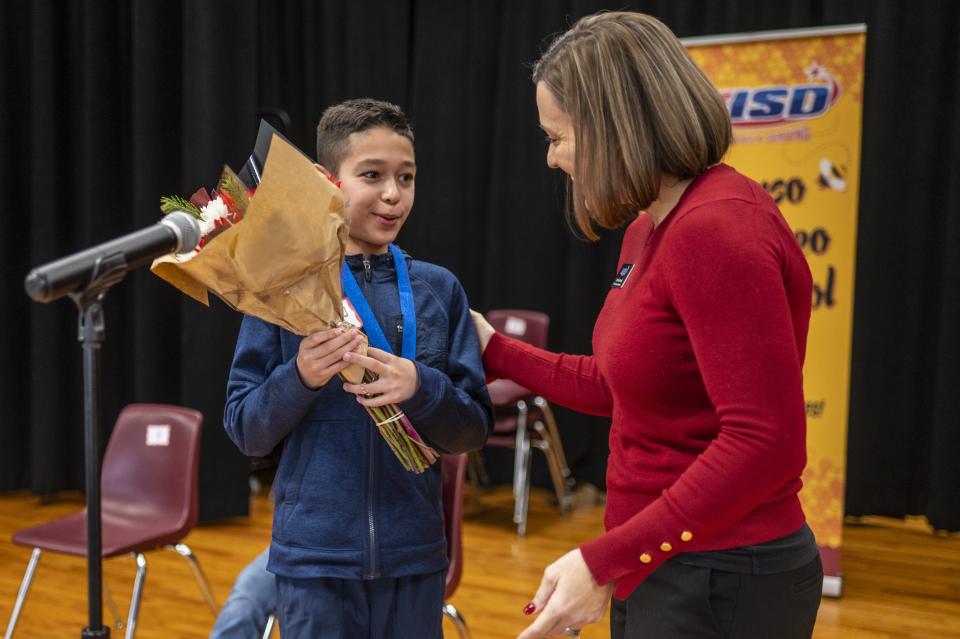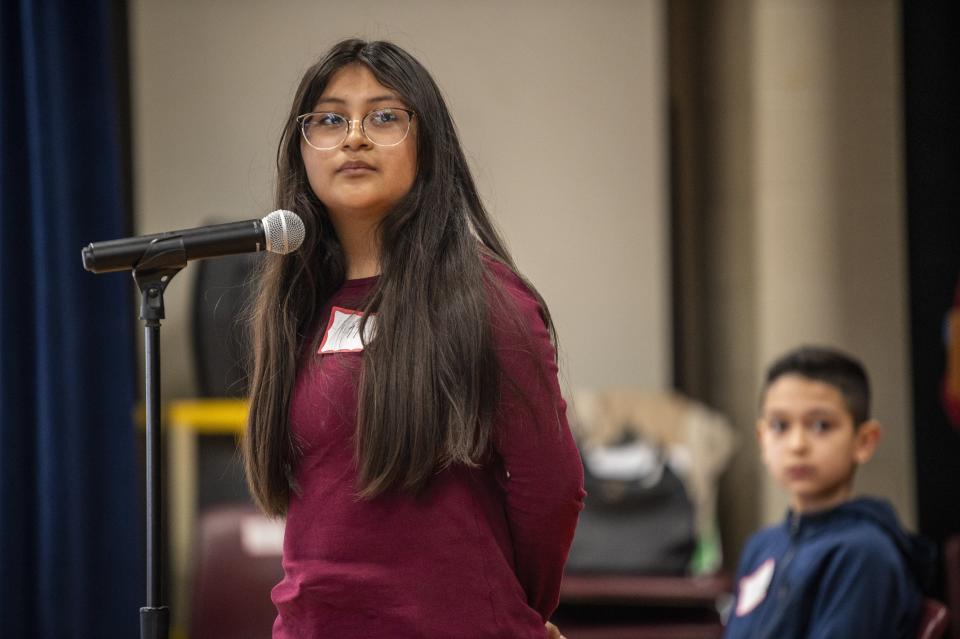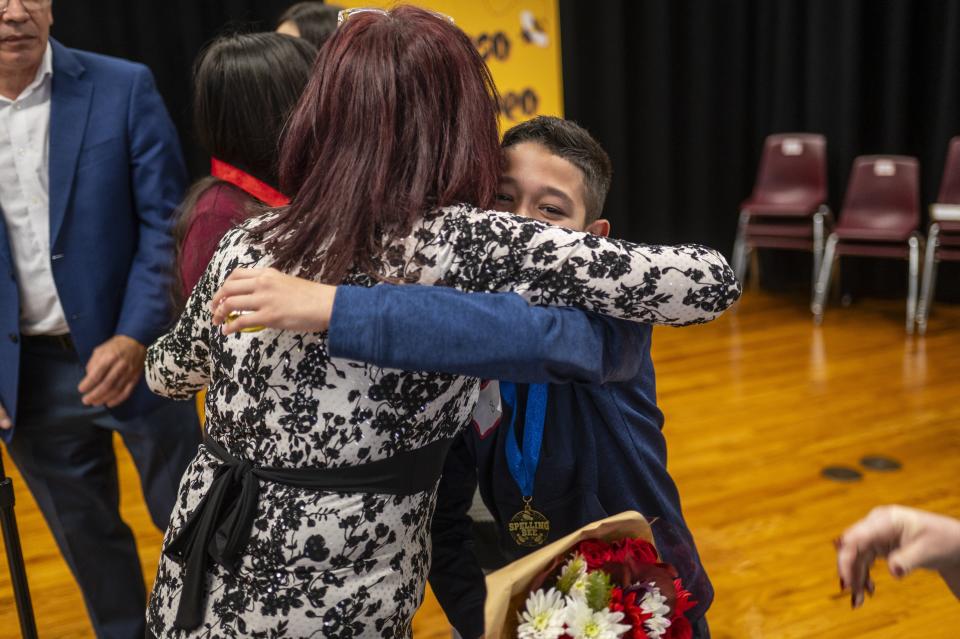Pflugerville student won the Spanish language spelling bee with this word. Up next: nationals
The school lunchroom at River Oaks Elementary School on Saturday still had the heavy scent of the prior week's meals. And, it still had students.
From the stage, nervous eyes avoided parents' smiles and legs twitched like horsetails. One set of hands took to prayer.
Then, one by one, each student got up from their seat to spell. Smiles. Gasps. Judge’s bells.
Spelling bees are quintessential parts of the American school year. But the 24 students at this weekend’s spelling bee were the only ones in Central Texas to participate in a Spanish language version of the tradition. The Pflugerville school district hosted the event to see which of its third through fifth grade students will represent it at next year’s National Spanish Spelling Bee in El Paso. The students came from the 11 district schools with dual-language programs.
The district has held the event in Spanish since 2011, according to Jennifer Harrell, the district’s dual language coordinator. According to David Briseño, the founder and coordinator of the National Spanish Spelling Bee, Pflugerville has the only competition in Central Texas. Thus, its winner does not have to participate in a regional competition.

The event highlighted part of the district’s current reality. Almost one in two of its students identifies as Latino and a quarter of its students live in households where Spanish is spoken, according to data the district provided the American-Statesman.
“I enjoy participating because I can practice Spanish and that’s my first language. It’s part of my culture in Cuba,” said Luis Orlando Ruiz Medina, a fifth grader at Copperfield Elementary and this year’s winner, who, like all those interviewed for this story, spoke in Spanish.
Ruiz Medina immigrated with his family from Cienfuegos, Cuba, to the United States six years ago. He won on Saturday after he correctly spelled the word “piragüismo,” the Spanish word for canoeing. He said he thought his success came from how much he liked to read in his spare time. For the past two months, he and other students from his school also practiced in 20-minute, end-of-the-day sessions with school staffer Doris Espinoza.
Along with rote memorization and games, Espinoza said the practice allowed students to learn standardized parts of the competition, like what names to use for the letters.

Spanish is spoken widely in more than 22 countries of the world. The forks in the language caused by national geographic boundaries, and time, among other things, means that even letters are said differently.
One example: Ask a grandmother how to say the letters B, V and W. Then ask a teacher instructing under the current rules of the Real Academia de Español, the institution that officially standardizes the Spanish language. You, and the student, might get more than six answers.
Alongside standardized letter names, students also had to correctly use accents and umlauts to skirt bitter disqualifications. They also had to make it past the shock of the stage.
Half of the competitors were out by the second round.

Riojas Elementary third-grader Samantha Espina made it to the second round of the competition. As the shortest competitor, she had to have the microphone angled as low as possible each time she spoke. It still hovered over her head.
"I like it because with spelling I can get over my shyness,” she said before listing off words she had learned during her study of the competition.
Her father, Pedro Espina, said he believed the competition was a valuable opportunity for his daughter to expand her vocabulary in a language whose diverse speakers have created so much of it.
“I want my daughter to be learning these things from a young age,” he said.
The Espinas are immigrants from Venezuela.
Alejandro Mojica, the multilingual instruction director, said the district hopes the spelling bee can accomplish an academic value and instill in the students an appreciation for their Spanish.
“We want to send the message that Spanish is a language with the same value as English,” he said. “We want the students to be fully bilingual … and we want them this to be a source of their pride, their maintaining the tradition.”
This article originally appeared on Austin American-Statesman: Texas student won the Spanish language spelling bee with this word

